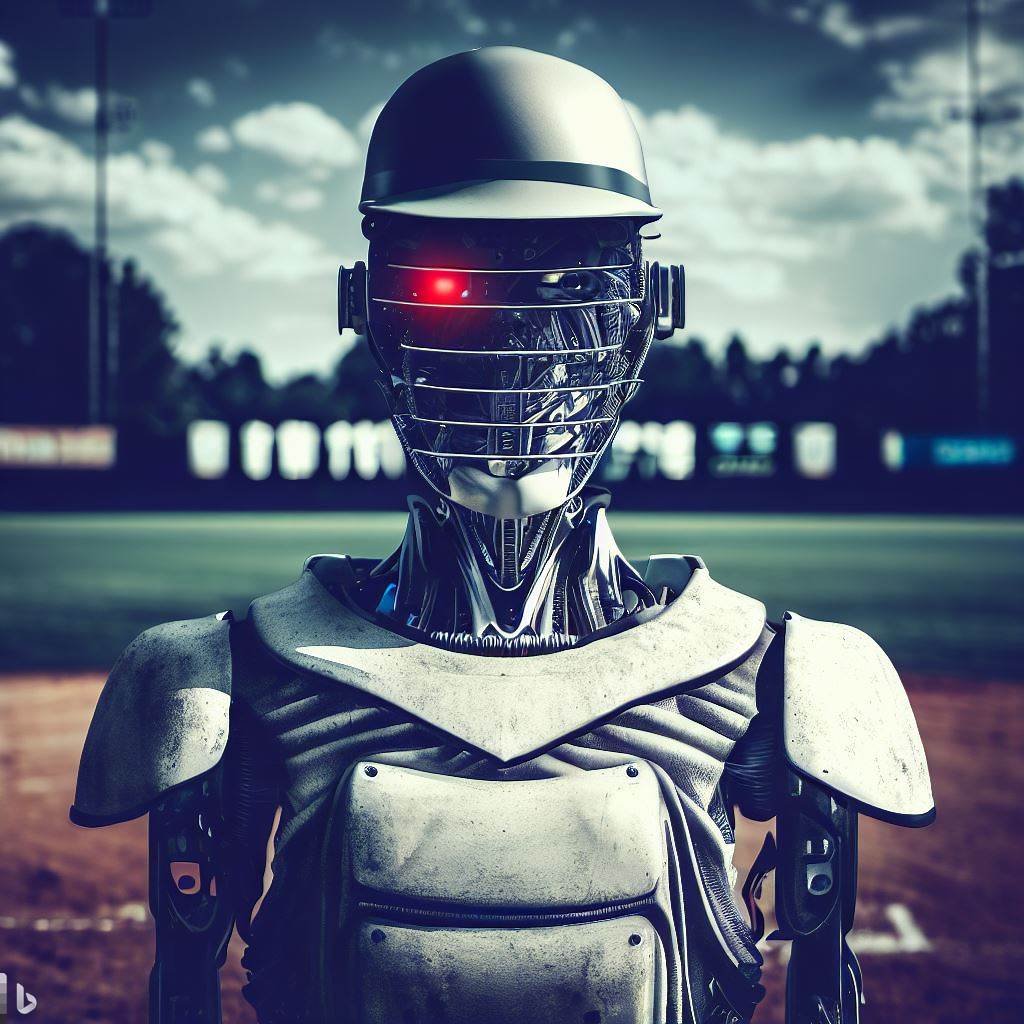Should the MLB implement robot umpires?
Robot Umpire (Photo generated by Advait Sathe using AI Bing Image Creator
By Luke Shimer, sports editor and, Matt Anderson, staff writer
Negative
In today’s age of baseball, umpires are constantly scrutinized for the mistakes that they make. Even if the call is right but looks wrong, they get criticized by the fans, players, and coaches. It’s tough being an umpire nowadays, so this prompts the question: Should the MLB implement robot umpires, which are 100% accurate when making calls, into the league?
Major League Baseball has been relying on human umpires to make decisions on balls and strikes since the game's inception. With advances in technology, there is a growing call for the implementation of robot umpires. The primary reason for this is the accuracy of the calls. Human umpires make mistakes, and their interpretations of the strike zone can vary not only from game to game but even from batter to batter, which can impact the outcome of the game. Robot umpires, on the other hand, can be programmed to accurately call balls and strikes, ensuring consistency and fairness throughout the game.
Another reason for the implementation of robot umpires is the speed of the game. With robot umpires, there is no need for the home plate umpire to crouch behind the catcher, which can speed up the game.
Finally, the use of robot umpires will also reduce the pressure on human umpires. Umpires are under intense stress to make accurate calls, and any mistake they make can be heavily criticized, especially in high-stakes games. By using robot umpires, the human umpires can focus on other aspects of the game, such as base calls, which can also be challenging. This will also reduce the risk of umpires making biased calls due to pressure or influence from the home team or crowd.
The insertion of robot umpires in the MLB will bring consistency, accuracy, speed, and reduced pressure to the game, benefiting players, fans, and umpires alike. While there may be some resistance to change, the advantages of robot umpires far outweigh any potential downsides, and it's time for the MLB to seriously consider putting this technology into effect.
Positive:
Baseball has changed so much over the last decade, but replacing a human umpire’s strike zone with a robot’s strike zone would be crossing the line. With all these recent new rules, including the pitch clock, pick-off limitations, replay review, three-batter minimum for pitchers, the free base runner in extra innings, mound visit limits, and even a limit on the amount of times a player can ask for a timeout, a possible addition of a computerized strike zone would drastically change the game. Games would be nearly unrecognizable compared to games played only ten years ago.
It is never a good thing when the word “umpire” is brought up in a conversation between sports fans. It’s always about how bad he has been or how inconsistent his zone is. But umpires really are greatly underappreciated in their very difficult job. In 2022, the median umpire correctly called over 93% of pitches, while the elite umpires were at 95%. Unfortunately, most people want to fret over the few calls per game an umpire gets wrong. Their success is often overlooked.
The fact that umpires aren’t perfect can also be a good thing. Pitchers and hitters need to determine what the strike zone is in the first few innings, which creates a strategic game within a game.
Lastly, umpires have been a part of the game since its creation. They aren’t a failed experiment, as they have been an integral part of baseball history. By eliminating umpires, Major League Baseball would be killing off part of its culture. There are some umpires that have been doing the job for decades upon decades, and to just get rid of them would be unnecessary and unfair. Also, a computerized strike zone would not eliminate the need for an umpire behind the plate. The way it would be done is by the umpire wearing some piece of technology that would send him a signal of when to call a strike. However, the emphatic strike or out signals still wouldn’t be the same without a real person making the calls.

